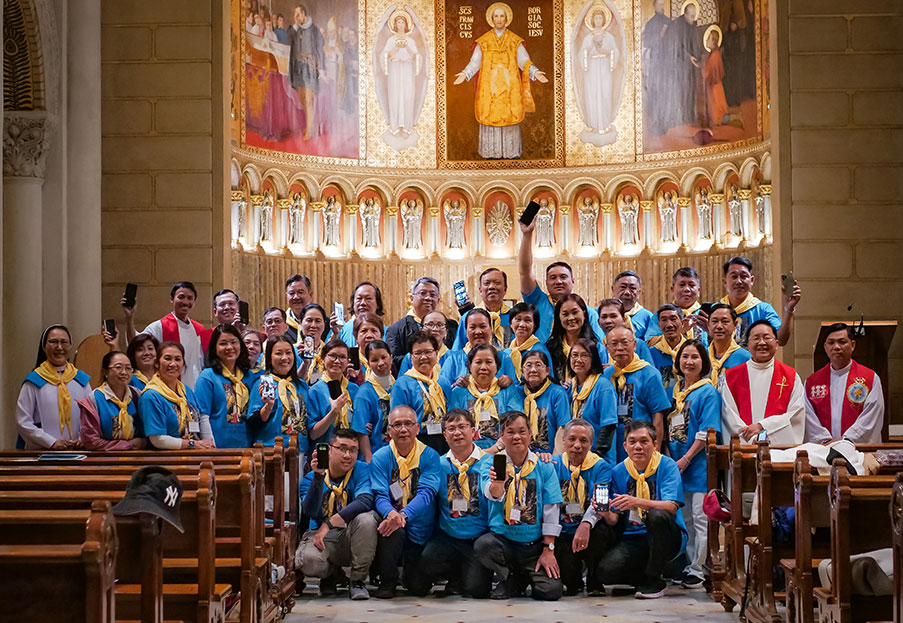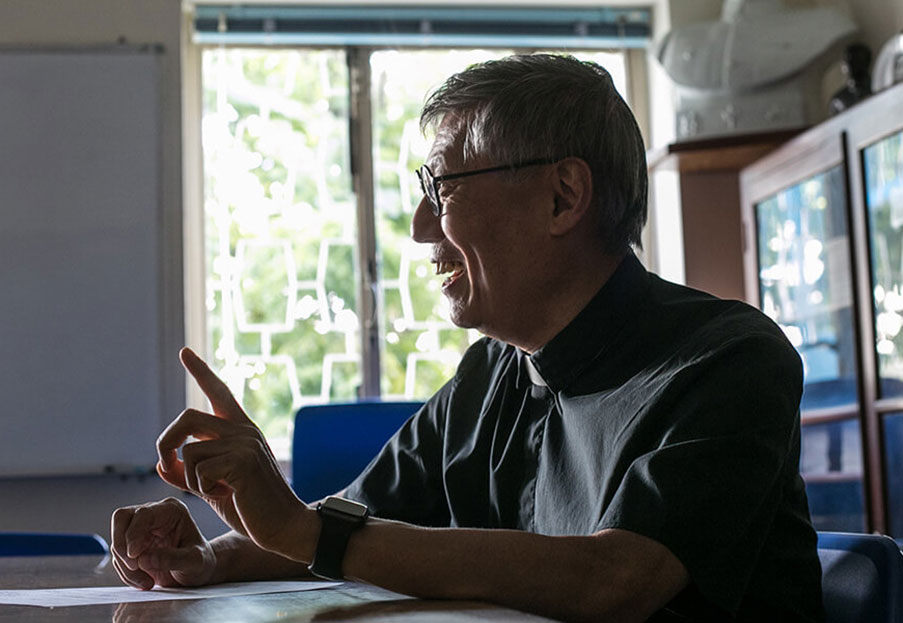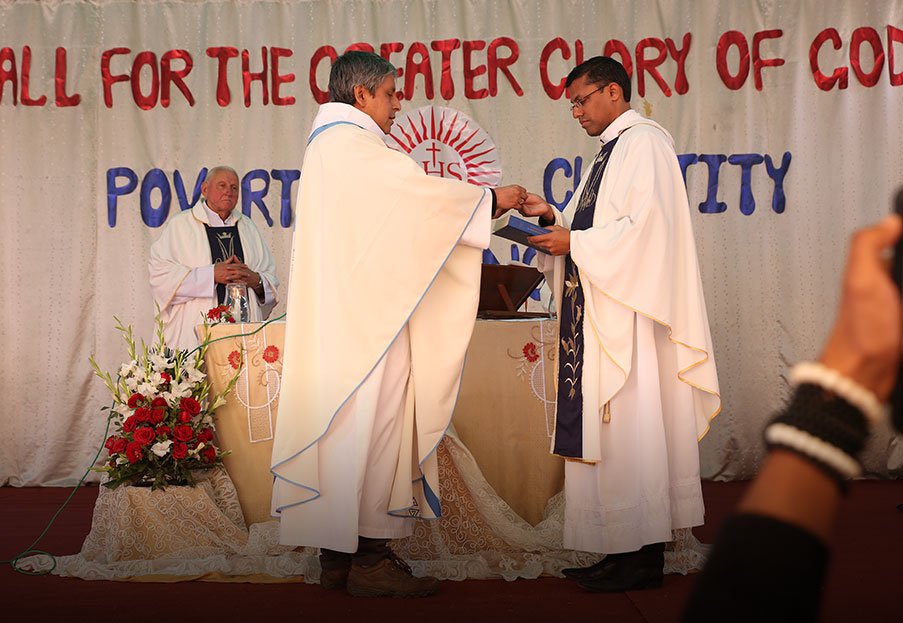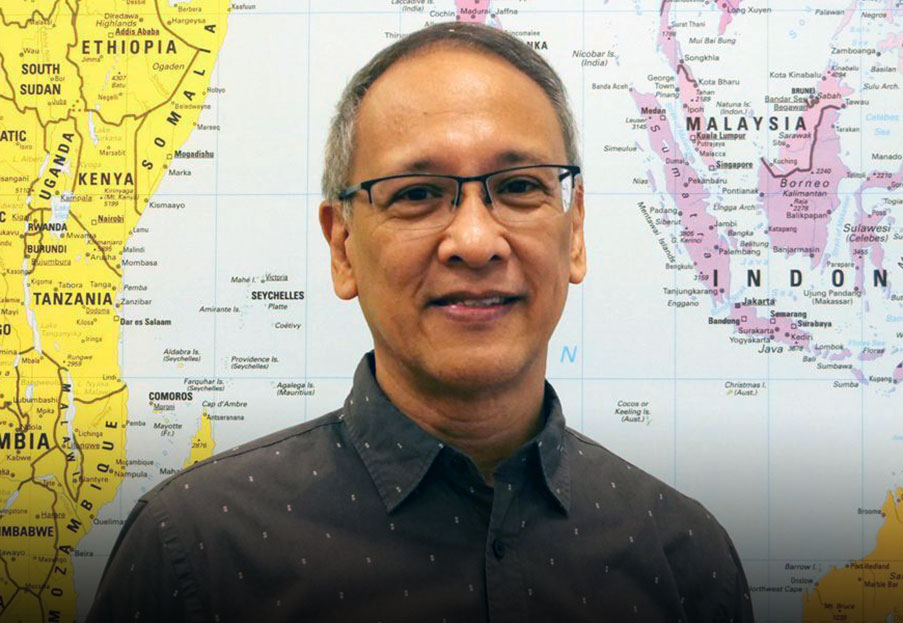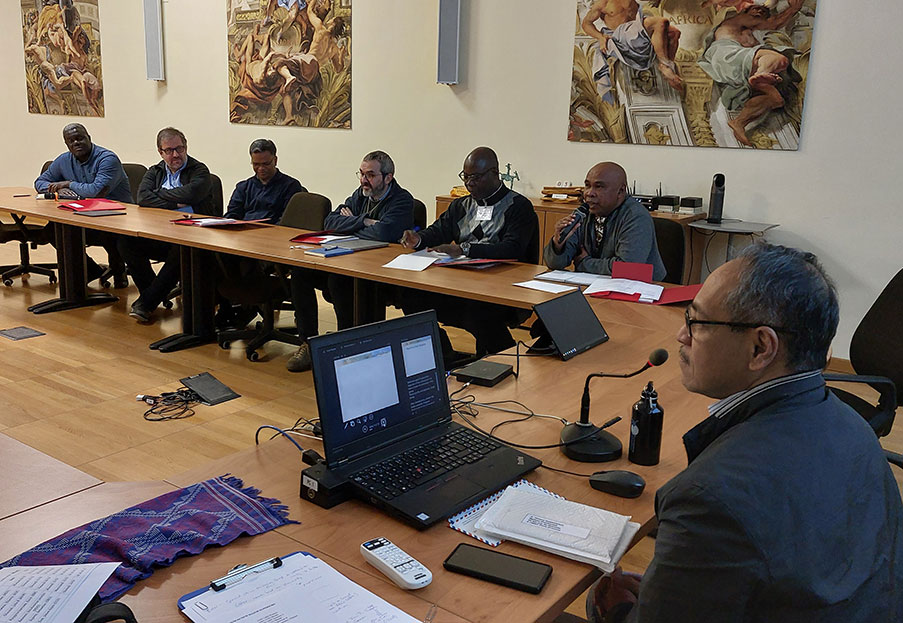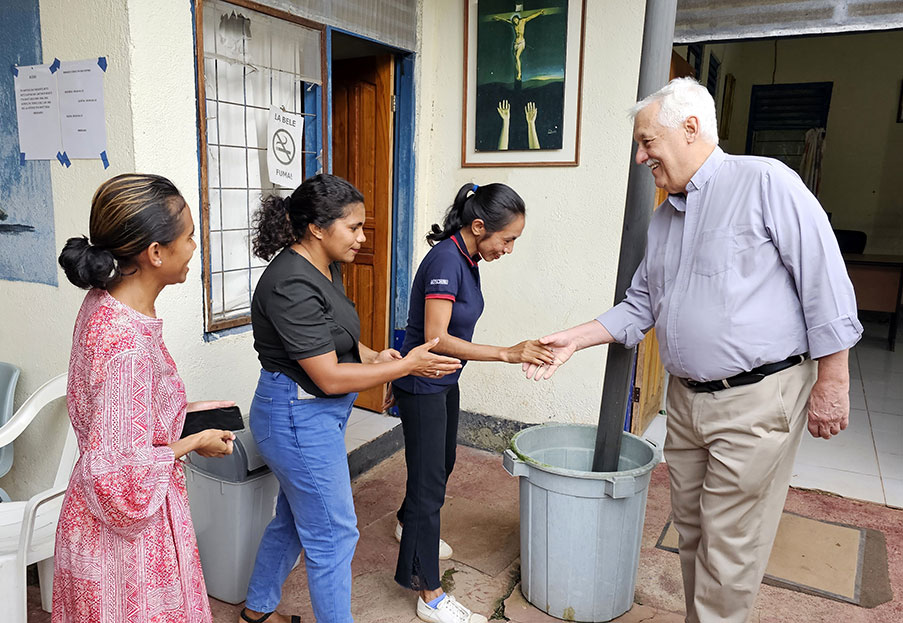Present and future at JCAP… continued
The Major Superiors’ Assembly of the Jesuit Conference of Asia-Pacific continued in Chiang Mai, Thailand, until 4 February. Three parts of the meeting’s programme deserve attention. The report of the President, Fr. Antonio Moreno SJ (PHI), the presentations of the Presidents of three other Conferences who came to participate in the meeting, and the discernment on the next JCAP President as Fr. Moreno comes to the end of his term.
The
President’s report shows a Conference that has fully recovered from the impacts
and slowdowns of the COVID-19 pandemic. Indeed, for more than two years very
severe travel and assembly restrictions had limited the joint activities of
Jesuits and their partners in Asia-Pacific, but since July 2022 the pace of
meetings has accelerated considerably.
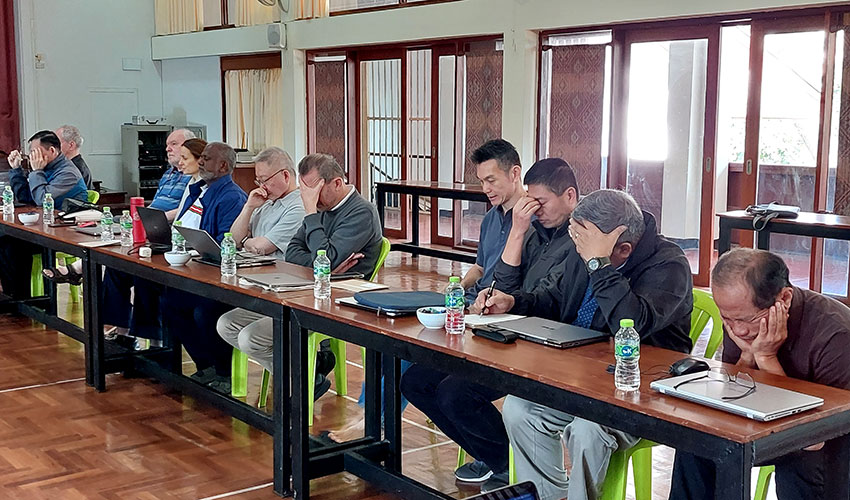
Plenty of time for reflection and prayer.
Fr. Moreno first highlighted activities related to interreligious dialogue. It is precisely in this region of the world that the involvement of the Society of Jesus is most notable. It is first of all the dialogue with the Muslim world that seems urgent. It was in this spirit that a meeting of the ‘Asia Pacific Theological Encounter Programme’ took place in Marawi City, the capital of the province of South Lanao, on the island of Mindanao. This is where a group linked to the Islamic State had come into direct and bloody conflict with the Philippine army. The Jesuit meeting included the remote participation of Jesuits from Pakistan and Indonesia. More importantly, the theme of the meeting was the mutual enrichment sought between Islam and Ignatian spirituality.
The other area of interreligious dialogue is Buddhism, a sizeable part of the region’s population belongs to this religious tradition. In an online workshop, participants reflected on the meaning of Christian mission in the context of experiences and collaborations with members of other religious traditions. The Ignatian Spirituality Network (ISN) also included dialogue with Islam and Buddhism in its first post-pandemic meeting.
The
President made special mention of the Conference’s attention to Myanmar, which
has been experiencing a political crisis marked by violence since February
2021. During the week, the Major Superiors were able to consider some of the
requests for help that are sent to the Conference. These often come from
countries with particular difficulties, such as Myanmar and Cambodia. East
Timor and Pakistan also received attention as the Major Superiors looked at how
best to support the Jesuit presence and vitality in these “frontier” regions.
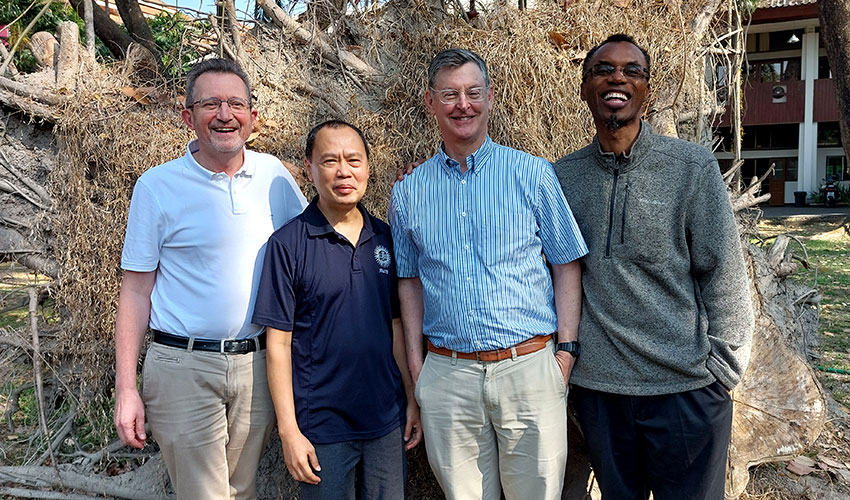
The four Presidents in attendance (left to right): Franck Janin, Tony Moreno, Brian Paulson and Agbonkhianmeghe Orobator.
The exceptional presence of three guest Conference Presidents (Fr. Franck Janin SJ, Europe; Fr. Agbonkhianmeghe Orobator SJ, Africa/Madagascar; Fr. Brian Paulson SJ, Canada/USA) enabled them to make their region of the world better known to Asia-Pacific Superiors. While there are significant and obvious differences between the contexts in which the Society of Jesus operates in Europe, Africa and North America, when compared to the geopolitical, economic and religious situation of the Jesuit Provinces in Asia-Pacific, Major Superiors can learn a great deal from the experience of others. For example, the decline in vocations and thus in the number of Jesuits in Europe has led to difficult exercises of discernment and detachment. It has also favoured the integration of more lay people into the workings of the works and has encouraged the leaving of certain responsibilities to others. These are avenues that could inspire Asia-Pacific, which is already facing the same types of challenges.
Africa
offers a very different experience. First of all, it is the only Conference
that is growing in membership. Secondly, one must be aware of the great
cultural diversity that African Jesuits in formation experience. The future of
JCAM, according to Fr. President Orobator, is highlighted by its apostolic
plan: networking, strengthening leadership, desire to offer more to the
universal Society. An important initiative: the Conference has also chosen to
assist the Church in Africa by supporting the synodal process.
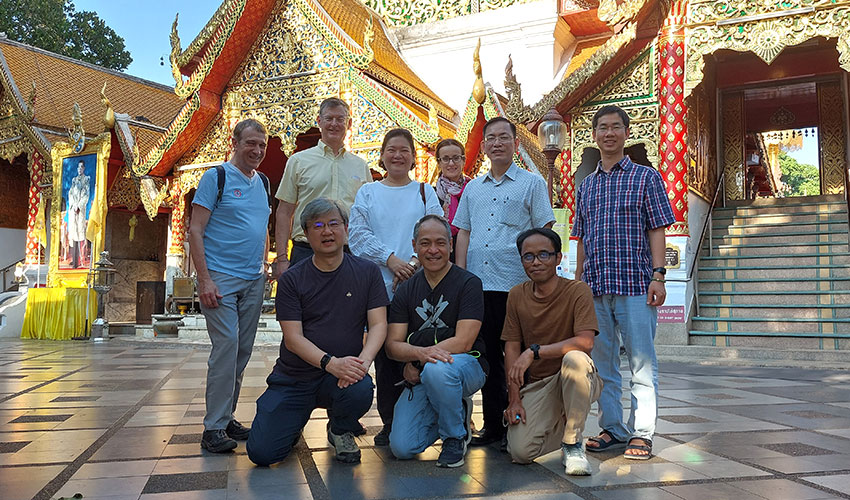
The programme included an excursion to a Buddhist temple.
Fr. Brian Paulson SJ of the JCCU encouraged the Major Superiors of Asia-Pacific to see the value of the reconfiguration of Jesuit Provinces in the world. The change from 12 to 5 Provinces for Canada and the USA has opened up great opportunities for collaboration. The Provincials of the new Conference (JCCU) can really work together to address the needs of the universal Society. He also mentioned the positive evolution of the Jesuit mission in the universities of his Conference thanks to a process that verifies the vitality of the characteristics of Jesuit education in these institutions. He made no secret of the challenges at home, particularly the political and ecclesial polarisation, and the tensions on issues such as immigration and racial justice.
Finally,
the Jesuits gathered in Chiang Mai used the Society’s usual ways of proceeding
to evaluate among themselves and to discern with the help of the Holy Spirit
the Jesuits who could be proposed to Father General for the appointment of the
next President of JCAP.
